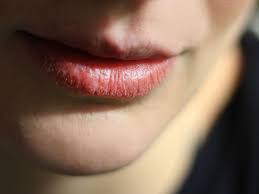Hello everyone, do you battle with lips dryness ?, this article covers the 3 Major Health causes of lips dryness and cure, it’s very important that you rad through this article and derive the cure to your lips dryness.
Lips, with their delicate skin and constant exposure to various environmental elements, are particularly prone to dryness and discomfort. Dry lips, medically known as cheilitis, can be a persistent issue affecting individuals of all ages, often leading to discomfort, pain, and cosmetic concerns. While occasional dryness may be attributed to external factors such as weather conditions or dehydration, chronic dryness often indicates underlying health issues that necessitate attention and proper management.
Understanding the underlying causes of lip dryness is crucial for effectively addressing the condition and restoring optimal lip health. This comprehensive guide aims to explore the primary health factors contributing to lip dryness, ranging from dehydration to underlying medical conditions, and to provide practical insights into effective treatments and management strategies.
By delving into the complexities of lip dryness causes and treatments, individuals can gain valuable knowledge to better manage and alleviate discomfort associated with this common condition. Let’s embark on a journey to uncover the major health causes of lip dryness and discover evidence-based approaches to promote soft, supple lips and enhance overall well-being.
Medical implications of lips dryness
Dryness of the lips, while often viewed as a minor inconvenience, can have significant medical implications, especially when left untreated or when it becomes a chronic issue. Some of the medical implications of lip dryness include:
- Pain and Discomfort: Persistent dryness of the lips can lead to pain, discomfort, and irritation, especially during activities such as eating, talking, or smiling. Cracked or chapped lips can exacerbate discomfort and may even lead to bleeding in severe cases.
- Increased Risk of Infection: Dry, cracked lips provide an entry point for bacteria, viruses, and fungi, increasing the risk of infection. Conditions such as angular cheilitis, characterized by inflammation and fissuring at the corners of the mouth, can develop as a result of prolonged lip dryness and provide a favorable environment for microbial growth.
- Impaired Healing: Dry lips are more prone to delayed healing, making them vulnerable to further damage and exacerbation of existing symptoms. Impaired healing can prolong discomfort and increase the risk of secondary complications, such as scarring or secondary infections.
- Psychological Impact: Chronic lip dryness can have a negative impact on an individual’s quality of life, leading to feelings of self-consciousness, embarrassment, and reduced self-esteem. The visible appearance of dry, cracked lips may affect social interactions and contribute to psychological distress.
- Underlying Health Conditions: In some cases, persistent lip dryness may be a symptom of underlying health conditions such as eczema, psoriasis, or nutritional deficiencies. Identifying and addressing these underlying medical issues is essential for effective management of lip dryness and associated symptoms.
Overall, while dry lips may seem like a minor concern, they can have significant medical implications that warrant attention and appropriate management. Addressing lip dryness through hydration, moisturization, and, when necessary, medical intervention can help prevent complications and promote optimal lip health and overall well-being.
3 Major Health causes of lips dryness and cure
Dehydration;
Dehydration is a significant contributor to lip dryness, as inadequate hydration affects the body’s ability to maintain moisture levels in the skin, including the delicate skin of the lips. When the body lacks sufficient water, it prioritizes vital organs over peripheral tissues, leading to dehydration of the skin, including the lips.
Several factors can contribute to dehydration, including:
- Inadequate Water Intake: Not consuming enough water throughout the day can quickly lead to dehydration. Factors such as busy schedules, forgetfulness, or reliance on sugary or caffeinated beverages instead of water can contribute to insufficient hydration.
- Excessive Loss of Fluids: Activities that result in excessive fluid loss, such as sweating during exercise, fever, vomiting, or diarrhea, can quickly deplete the body’s water stores, leading to dehydration. In these situations, replenishing lost fluids becomes crucial to prevent dehydration-related symptoms, including dry lips.
- Environmental Factors: Hot and dry weather conditions, as well as high altitudes, can increase the body’s fluid requirements and contribute to dehydration. Additionally, exposure to air conditioning or central heating systems can dry out the air, leading to increased moisture loss from the skin, including the lips.
To address dehydration-related lip dryness, increasing water intake is essential. Aim to drink an adequate amount of water throughout the day, typically around eight 8-ounce glasses, or more depending on individual needs and activity levels. Consuming water-rich foods such as fruits and vegetables can also contribute to hydration.
In addition to increasing water intake, using hydrating lip balms containing moisturizing ingredients such as hyaluronic acid, shea butter, or glycerin can help replenish lost moisture and restore suppleness to dry lips. Avoiding excessive consumption of caffeine and alcohol, which can have diuretic effects and further contribute to dehydration, is also recommended.
By addressing dehydration and prioritizing hydration, individuals can effectively prevent and alleviate dry lips, promoting overall lip health and comfort.
Environmental factors;
Environmental factors play a significant role in causing dry lips. Exposure to harsh weather conditions and other environmental elements can strip the delicate skin of the lips of its natural moisture, leading to dryness, chapping, and discomfort. Some of the key environmental factors that contribute to dry lips include:
- Cold Weather: Cold temperatures can cause the skin to lose moisture, leading to dryness and chapping of the lips. Additionally, cold winds can further exacerbate moisture loss, especially if the lips are left unprotected.
- Low Humidity: Dry air, particularly in indoor environments with low humidity levels, can sap moisture from the lips and skin. Heating systems in homes and offices during the winter months can further contribute to dryness.
- Sun Exposure: Prolonged exposure to ultraviolet (UV) radiation from the sun can damage the delicate skin of the lips, leading to dryness, sunburn, and an increased risk of skin cancer. The lips lack melanin, the pigment that provides some protection against UV radiation, making them particularly susceptible to sun damage.
- Wind Exposure: Windy conditions can accelerate moisture loss from the lips, causing them to become dry, chapped, and irritated. Windburn, a condition similar to sunburn, can occur on the lips after prolonged exposure to strong winds.
To protect against environmental factors that contribute to dry lips, it is ssential to take preventive measures, such as:
- Using Lip Balm: Applying a protective lip balm with moisturizing ingredients, such as beeswax, shea butter, or coconut oil, can help seal in moisture and prevent dryness.
- Wearing Lip Protection: During cold weather or windy conditions, wearing a scarf or a face mask can provide an additional barrier to protect the lips from moisture loss.
- Using Sunscreen: Applying a lip balm with SPF (sun protection factor) or using a lip sunscreen can help protect the lips from UV radiation and prevent sunburn and sun damage.
By being mindful of environmental factors and taking appropriate precautions, individuals can help prevent dry lips and maintain soft, hydrated lips year-round.
Underlying health conditions; Underlying health conditions can contribute to chronic lip dryness, requiring specialized treatment approaches to address the root cause. Some of the key underlying health conditions associated with dry lips include:
- Eczema (Atopic Dermatitis): Eczema is a chronic inflammatory skin condition characterized by dry, itchy, and inflamed skin. It can affect various parts of the body, including the lips, leading to persistent dryness, scaling, and cracking. Eczema flare-ups on the lips may be triggered by factors such as stress, certain foods, or environmental allergens.
- Psoriasis: Psoriasis is a chronic autoimmune disease characterized by the rapid growth of skin cells, leading to thick, red patches with silvery scales. Psoriasis can affect the lips, causing dryness, scaling, and cracking. In some cases, psoriasis-related inflammation may also lead to fissures at the corners of the mouth (angular cheilitis).
- Nutritional Deficiencies: Deficiencies in essential vitamins and nutrients, such as vitamin B-complex (including B2, B6, and B12) and vitamin C, can manifest as dry, cracked lips. These nutrients play crucial roles in maintaining skin health and moisture balance. A diet lacking in these nutrients or conditions that impair nutrient absorption, such as celiac disease or inflammatory bowel disease, can contribute to lip dryness.
- Allergic Reactions: Allergic reactions to certain foods, cosmetics, oral care products, or environmental allergens can cause inflammation and dryness of the lips. Contact dermatitis, a type of allergic reaction that occurs when the skin comes into contact with an irritant or allergen, can lead to symptoms such as dryness, itching, redness, and swelling of the lips.
- Medication Side Effects: Some medications, including retinoids (used to treat acne and other skin conditions), antihistamines, diuretics, and chemotherapy drugs, can cause dryness of the lips as a side effect. These medications may disrupt the natural moisture balance of the skin or reduce saliva production, leading to dry, cracked lips.
Managing dry lips associated with underlying health conditions often involves addressing the underlying cause in addition to symptom management. This may include topical treatments, oral medications, dietary modifications, and avoiding triggers that exacerbate symptoms. Seeking medical evaluation and guidance from a healthcare professional is essential for accurate diagnosis and personalized treatment.
Management of lips dryness
The management of lip dryness involves a combination of preventive measures, lifestyle modifications, and targeted treatments to address underlying causes and alleviate symptoms. Here are some effective strategies for managing lip dryness:
- Hydration: Drinking an adequate amount of water throughout the day is essential for maintaining overall hydration, including lip moisture. Aim to drink at least eight glasses of water daily, and increase intake during hot weather or periods of increased physical activity.
- Protective Lip Balms: Use lip balms with hydrating ingredients such as beeswax, shea butter, coconut oil, or hyaluronic acid to moisturize and protect the lips. Apply lip balm regularly, especially before exposure to harsh weather conditions or dry environments.
- Humidifiers: Use a humidifier in indoor environments, especially during the winter months when heating systems can dry out the air. Maintaining optimal indoor humidity levels helps prevent moisture loss from the lips and skin.
- Avoid Licking Lips: While licking the lips may provide temporary relief, it can actually worsen lip dryness by removing natural oils and moisture. Instead, use lip balm to hydrate and protect the lips throughout the day.
- Protective Measures: Wear a scarf or face mask in cold, windy weather to shield the lips from moisture-robbing environmental elements. Use lip balms with SPF protection to prevent sun damage and sunburn.
- Healthy Diet: Consume a balanced diet rich in vitamins, minerals, and essential fatty acids to support overall skin health, including the lips. Include foods high in vitamins B and C, such as fruits, vegetables, whole grains, and lean proteins.
- Avoid Harsh Products: Avoid using lip products containing harsh ingredients such as fragrances, menthol, or alcohol, which can further dry out the lips and cause irritation. Opt for gentle, hypoallergenic lip care products instead.
- Medical Evaluation: If dry lips persist despite preventive measures, consult a healthcare professional for evaluation and treatment. Underlying health conditions such as eczema, psoriasis, or nutritional deficiencies may require medical intervention for proper management.
By incorporating these management strategies into your daily routine, you can effectively alleviate lip dryness, maintain optimal lip health, and enjoy soft, supple lips year-round.
Conclusion
Dry lips can be both uncomfortable and unsightly, often resulting from a combination of environmental factors and underlying health conditions. In this discussion, we explored two major health causes of lip dryness – dehydration and environmental factors – along with effective management strategies.
Dehydration poses a significant risk to lip health, as inadequate hydration can lead to moisture loss and dryness. Addressing dehydration involves increasing water intake, avoiding excessive caffeine and alcohol consumption, and using hydrating lip balms to restore moisture to the lips. By prioritizing hydration and incorporating these simple yet essential strategies into daily routines, individuals can effectively combat dehydration-related lip dryness and promote optimal lip health.
Environmental factors, including cold weather, low humidity, sun exposure, and wind exposure, can exacerbate lip dryness and contribute to discomfort. Protective measures such as using lip balms with SPF protection, wearing scarves or face masks in cold and windy conditions, and maintaining indoor humidity levels can help shield the lips from harsh environmental elements. By being mindful of environmental triggers and implementing preventive measures, individuals can minimize the impact of environmental factors on lip dryness and maintain soft, supple lips year-round.
In conclusion, addressing dehydration and environmental factors are crucial steps in managing lip dryness and promoting overall lip health. By understanding the underlying causes and implementing appropriate management strategies, individuals can alleviate discomfort, prevent complications, and enjoy soft, hydrated lips for enhanced comfort and confidence.



